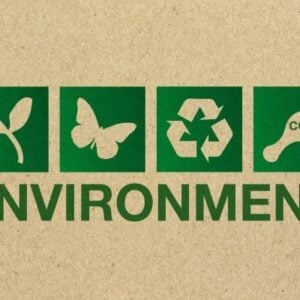Jordan’s foam, refrigeration, and air conditioning industries once relied heavily on chemicals that contributed to greenhouse gas emissions and damaged the ozone layer. In line with its commitment under the Montreal Protocol, the country pledged to eliminate these harmful substances by 2030. With support from a World Bank-funded initiative, Jordan reduced its consumption of ozone-depleting substances by 87%, signaling a major step toward sustainable industrial growth.
For many years, manufacturers across Jordan used hydrochlorofluorocarbons (HCFCs) in production, despite their severe impact on the climate and ozone layer. Between 2006 and 2010, HCFC use nearly doubled, reaching 1,405 metric tons due to rising demand for cooling systems during extreme heatwaves. Recognizing the growing threat, Jordan transformed this challenge into an opportunity by launching the ODS3 project in 2013 with the World Bank’s support, aiming to phase out HCFCs entirely by 2030.
The ODS3 project helped businesses transition to climate-friendly alternatives without disrupting productivity or livelihoods. Building on earlier efforts that included banning HCFCs and promoting cleaner technologies, the project supported 48 enterprises, most of them small and medium-sized. These businesses successfully replaced harmful substances with safer options, boosting efficiency and improving their market competitiveness. By project completion, Jordan had phased out two major HCFCs, avoiding over 240,000 tons of CO₂-equivalent emissions—comparable to removing more than 50,000 gasoline cars from the road for a year.
Many companies saw additional benefits beyond environmental gains. For example, the Mohammad Abu Haltam Group upgraded its air conditioning facilities, achieving higher productivity, recognition as a green energy factory, and EU-standard efficiency certification. Private sector commitment was also strong, with large firms investing $1.76 million of their own capital to co-finance the transition, reflecting confidence in clean technologies and shared responsibility for environmental protection.
The project’s success was the result of close collaboration between the World Bank, Jordan’s Ministry of Environment, the United Nations Industrial Development Organization (UNIDO), and the private sector. Strengthening the National Ozone Unit ensured strict policy enforcement and lasting compliance. The nationwide ban on key HCFCs guarantees that progress will continue, while businesses have also gained access to new export markets previously closed to HCFC-based products.
Jordan’s achievement provides valuable lessons for other countries balancing environmental commitments with economic resilience. By integrating sustainability with private sector development, Jordan has shown that protecting the planet can go hand in hand with industrial growth and competitiveness. The ODS3 project stands as a model of environmental stewardship, proving that strong partnerships and effective policies can deliver long-term benefits for both the environment and the economy.







